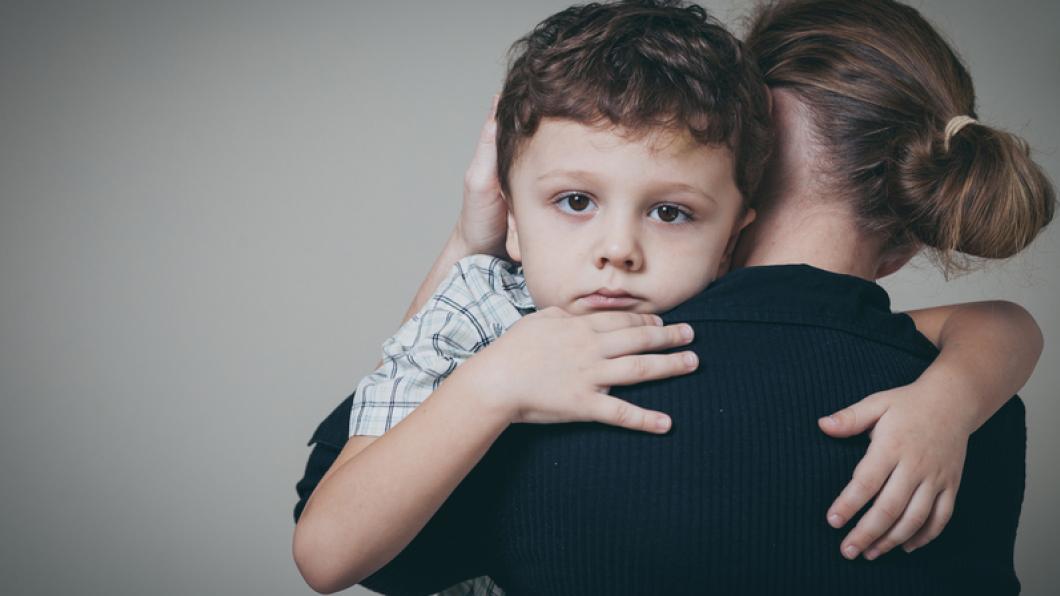
Parents seeking help met with blame, study finds
By Louise Kinross
A British survey found 86 per cent of 685 parents had been blamed by professionals when they sought help for a child who was eventually diagnosed with autism.
Parents were accused of poor parenting; their concerns were not believed; or they were accused of neglect or Fabricated and Induced Illness (FII)—when a parent exaggerates or deliberately causes symptoms of a child's illness.
Seventy-seven per cent were blamed by education staff and 63 per cent by health professionals. Almost half said they were blamed by friends and family.
“Autism is not caused by poor parenting, nor can it be cured by changing the way parents raise their children,” write the authors of the report Blamed Instead of Helped. The research, commissioned by NHS England, included an online survey, a systematic literature review, and two parent focus groups. It was led by the charity ADASS and the University of Birmingham.
The report identifies many areas of concern.
Autism is widely misunderstood by professionals, the authors say. An example is not understanding that a child can present differently at home than at school. Eighty-one per cent of parents said they weren’t believed when they shared what they were seeing in their child; 78 per cent said they were judged; and 72 per cent reported being openly criticized about their parenting skills. This included blaming a parent for causing their child’s behaviour. Half of the parents said their child didn't feel believed, and 46% said their child developed negative ideas about autism.
The impact of blame was devastating. Ninety per cent of parents in the survey said their child didn’t get the right support. Over 70 per cent said their child’s mental health worsened, with one in four parents reporting a high risk of suicide in their child. Most reported increased tension within the family and poor mental health among family members.
Being blamed was traumatic for parents: 94 per cent felt stress and anxiety; 68 per cent felt more isolated; and one-third were afraid that their child might be taken from their care. Half of parents changed their employment to accommodate their caring, and almost half lost income. One in four were viewed as suspicious and referred for safeguarding, and one in six were accused of Fabricated and Induced Illness.
“None of the parents in our focus groups received any support for themselves or their children to address the impact of a child being taken without warning from their family, or of parents being wrongfully accused of neglect or harm towards their child,” the authors note.
The report found autistic parents were three times more likely to be accused of FII than non-autistic parents, and three times more likely to have their child removed. “I was told ‘Maybe you can’t meet your child’s needs because you are autistic,’” one focus group participant said.
Poor experiences of getting their children’s needs met led to a high degree of parent mistrust: 73 per cent said they’d lost trust in services and professionals. Over a third said they were blamed after they made a complaint about a service. There was no accountability or consequences for clinicians when a parent was found to be wrongly accused of FII or neglect.
Parents’ round-the-clock knowledge about their child was not valued: 81 per cent of those who were blamed said professionals didn’t believe what they said about their child’s behaviour or experience. They were accused of knowing too much or wanting to label their child and cause harm. They were also criticized for being over- or under-protective.
Parental blame was most likely to occur before a child received an autism diagnosis. Almost half of parents said they were less likely to be blamed by health professionals following the diagnosis. For a quarter of parents, blaming intensified after their child’s diagnosis.
Parents said the level of support and information they received before and after their child’s diagnosis was lacking. While waiting for an autism assessment, 65 per cent said they weren’t offered any support or information. Of the 35 per cent who did receive support, 81 per cent found autism support groups the most helpful.
Fifty-eight per cent of parents who were referred to a parenting course found it unhelpful. Anecdotally, parents told the researchers that parenting courses were aimed at neurotypical parents with neurotypical children, and the strategies they shared weren’t appropriate.
When asked to describe the support they received after their child’s diagnosis in one word, they most commonly said: “Non-existent.” In focus groups, parents said they had had positive experiences when supported by neurodiverse professionals who “get it.” Also noted as helpful were autism organizations and peer support groups.
To improve understanding of autism among professionals, parents recommended better training in hidden disabilities, masking, and the different ways autism presents based on gender.
Parents said professionals need better awareness about the harms of blame, and how families need support when accusations are unfounded. They also wanted specific training to improve how professionals work with autistic parents, and for false accusations to be investigated. Parents must be believed, they said, and need to be seen as partners. In terms of services, there should be greater recognition of the benefits of neurodivergent clinicians and autism-specific services.
The report noted that professionals’ perspectives on parental blame have not been well studied. Surveying professionals is part of a second stage of this research.
Like this content? Sign up for our monthly BLOOM e-letter, follow BLOOM editor @LouiseKinross on X, or watch our A Family Like Mine video series.